Labour Market Impact Assessments (LMIA) in Canada
A Labour Market Impact Assessment (LMIA) is a document a Canadian employer needs to hire most types of foreign workers.
A positive LMIA confirms there is a need for a foreign worker to fill the job at hand and that no Canadian worker is available to do the job.
An LMIA application must be made by an employer. Once the LMIA is obtained, it must be sent to the candidate to accompany the work permit application. Generally, a temporary foreign worker will need a work permit and a positive LMIA in order to work in Canada.
How Canada Makes LMIA Application Decisions?
The decision on whether or not to issue a positive LMIA is made by Employment and Social Development Canada (ESDC) and then issued to Immigration, Refugees and Citizenship Canada (IRCC).
IRCC then informs the employer of the final LMIA decision. In making an LMIA decision, ESDC considers several factors including:
- The impact of hiring the foreign worker will have on the Canadian labour market.
- The wages and working conditions being offered to the foreign worker.
- The availability of Canadian citizens or permanent residents to do the job in question.
- Whether a transfer of useful knowledge and skills would result from hiring the foreign worker.
- Whether hiring the foreign worker will help create jobs for Canadian citizens and permanent residents.
LMIA Validity and Duration of Employment
After a positive LMIA is issued, a temporary foreign worker has six months to use it to apply for a work permit. No extensions will be given. If the six-month period expires and the foreign worker does not submit a work permit application, a new LMIA application is required.
In Quebec, there is a separate LMIA application process.
Important Distinction
The validity of the LMIA is not the same as the duration of employment of the LMIA.
The validity of an LMIA indicates the amount of time that a foreign worker applicant has to use the LMIA and apply for a work permit.
The duration of employment of an LMIA indicates the length of validity of a work permit issued using the LMIA. There are three options relating to the duration of employment for an LMIA:
- Temporary duration to support a work permit application only.
2.Permanent duration to support a permanent residence application. Work permits issued under a permanent duration LMIA will be issued for a maximum period of two years, provided the candidate meets the requirements set out in the LMIA. The work permit will not be extended regardless of whether or not a permanent residence application is underway.
3.A combination of permanent and temporary duration to support both a permanent residence application and a work permit application.
Exempt from the LMIA Requirement
In this article, you will find:
- Lists of jobs and individuals who are exempt from the requirement to obtain an LMIA before applying for a temporary foreign worker permit.
For some jobs, employers do not need to obtain a LMIA before hiring a foreign worker. There are three kinds of jobs that are exempt from the LMIA requirement:
- Jobs included in an international trade accord, such as the North American Free Trade Agreement (NAFTA).
- Jobs included in an accord between the federal government and a provincial/territorial government.
- Jobs that are in the best interest of Canada.
Note: Foreign workers that are exempt from the LMIA requirement must still obtain a work permit in order to work in Canada.

